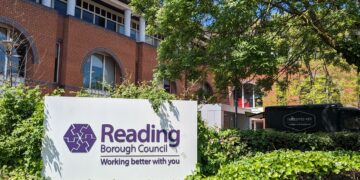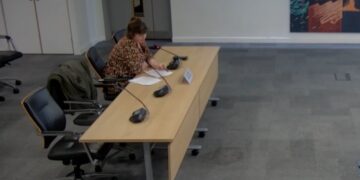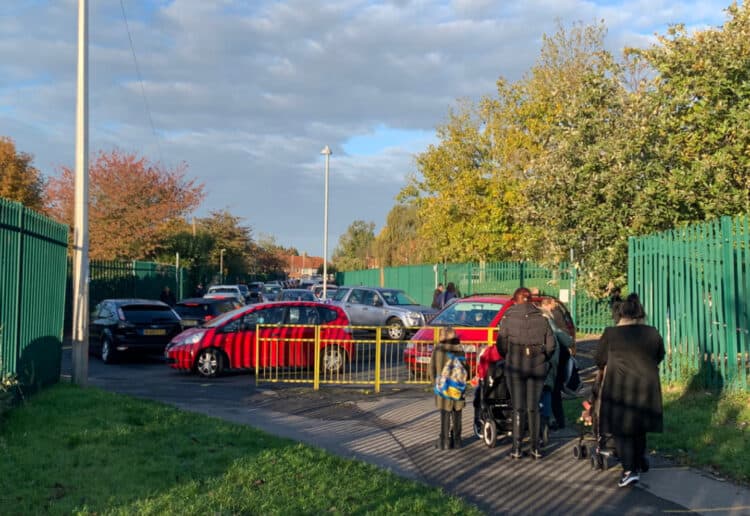A study aimed at tackling pollution and poor air quality outside schools in Reading has been launched.
It will involve giving children, parents and teachers monitoring equipment to help them identify toxic air pollution and choose safer routes to school.
The University of Reading is conducting research into air quality around schools, and wants to build a toolkit to help the learning establishments to devise ways of tackling pollution and improve the health of pupils, staff and parents.
Pollution can lead to severe health problems including asthma, reduced lung development, wheezing and coughing, mental health issues and childhood obesity.
The project is being led by Dr Hong Yang, from the university’s department of geography and environmental science, and Marta O’Brien from its technical services department.
Dr Yang said: “The school gates are one of the worst affected areas. The combination of rush hour congestion, proximity to roads and little space to move around makes for a very high level of pollution.
“By better monitoring the pollution there throughout the day, and particularly at busy times, we can help schools to introduce processes which will decrease exposure or potentially even improve air quality in those specific areas.”
The project would look at policies such as encouraging drivers not to idle their engines.
“These are very popular in schools across the UK, but we want to know if they are working well enough and if they would have an impact on schools in Reading,” Dr Yang explained.
The project also involves tracking pollution levels inside as well, which involves installing monitoring equipment in school buildings.
Mrs O’Brien said: “We suspect that the pollution levels outside these schools are high. We anticipate that there is likely some protection being inside, but we want to know how much. Our children sit in classrooms all day long, for most of their young lives – we also need to know what the air quality is like inside the schools.
“We became particularly interested in this during the Covid-19 pandemic, because many places were keeping their windows and doors open to increase ventilation, while others took the approach of increasing air ventilation systems.
“Both approaches have helped stop the spread of Covid-19 particles, but they may have had an unintended impact on air pollution in schools.
“We want to monitor that over an extended period.”
The research is being conducted in partnership with several schools, including Alfred Sutton Primary School, off Wokingham Road; Hemdean House School in Caversham; Geoffrey Field Junior School in Whitley; and Oxford Road Community School.
The monitoring equipment has been funded through a £5,000 grant from the university and the John Sykes Foundation.
Last month, Reading Borough Council made three ‘school streets’ permanent.
School streets involve the temporary closure of roads during morning drop off and afternoon pick up to encourage walking to school and improve air quality.
The council has previously taken part in the ‘No Idling’ campaign, which urges drivers to switch off their engines while stationary, reducing the amount of pollution which comes from their vehicles.
























